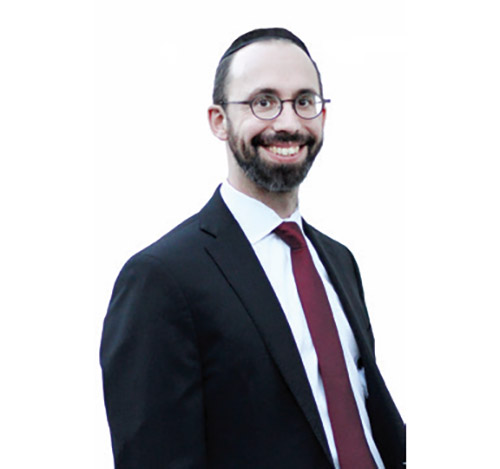
Titles and introductions mean a lot. About a year ago I went to the Friday night shalom zachor of the grandson of one of our popular elected officials. Of course there were many people there that night, and the atmosphere was festive. When the host saw me, he gave me a very warm greeting and led me to sit next to a distinguished man in his mid-30s, wearing a yarmulke and a pink shirt. “Rabbi, meet my friend Mayer Lora.” We started doing the shmooze, and I realized he didn’t know very much Jewishly. Maybe my friend wanted me to invite this fellow to learn in our yeshiva! After a little more time and pleasant banter, I came to realize this man was actually Mayor Lora, the mayor of our city! Yes, titles and introductions are important, and sometimes need to be spelled out very clearly to effectively communicate!
The Gemara Brachos (7b) tells us Avraham was the first person in the world to refer to Hashem as Adon—Master (Parshas Lech Lecha 15:8). Additionally, Daniel was saved from the lion’s den because when he cried out to Hashem in prayer, Daniel referred to Hashem as Adon. He was therefore saved in the merit of Avraham, who also referred to Hashem as Adon. Yet, we know that Adam, Shem and Noach all prayed to Hashem. What was this special practice that Avraham developed of referring to Hashem as Adon?
We presently refer to Hashem as Adon with one of the first prayers of the day, Adon Olam. We also start Shemoneh Esrei with the words “Adon-ai sefasei tiftach”—Hashem, may You open our lips. Rav Sherira Gaon says that when one recites the prayer of Adon Olam with proper concentration, all his prayers of the day will be answered, the Satan will be removed from him, and his prayers on the High Holidays will be accepted! What is so special about this prayer that makes it an “ace in the hole”?
The Magid Tzedek says that we start the prayers in the morning and the Shemoneh Esrei with the word Adon, precisely to invoke the merit of Avraham, who referred to Hashem as Adon. However, we still need to explain what is so special about referring to Hashem as Adon.
Rav Shimon Schwab quotes Rav Shamshon Raphael Hirsch, who explained that Adon means master, signifying the more personal connection that a servant has to the King, as opposed to the relationship between the King and His nation. But what makes Adon Olam really special is when at the end, it says “Vehu Keli—Hashem is My God.” That is the uniqueness of Adon Olam and the novel idea that Avraham introduced to the world. Avraham referred to Hashem not just as Adon—Master, but as Ado-noi, my Master. Avraham had a personal relationship with Hashem—one in which he could speak freely and ask anything.
Over the years I’ve often wondered why young children, for the first few years of their Jewish education, are taught the first few paragraphs of the morning prayers like Ma Tovu, Adon Olam and Yigdal. Yet, they are not taught the more obligatory prayers, such as the blessings of Krias Shema or Shemoneh Esrei.
Now I realize that these initial prayers really set the stage for our relationship with Hashem. If we have proper concentration, then we will recognize that Hashem—the Master of the world—is interested in me and He listens and cares for me personally. He is my Master and I have a personal relationship with Him. Davening—praying—is a one-to-one conversation with Hashem!
I believe this explains the next words in Adon olam, “v’hu nisi”—Hashem is my banner. The word neis has multiple meanings, including banner, miracle and test. Nisi in this case means Hashem is testing me for the purpose of raising me up to a higher level. Hashem is my personal coach, whose sole objective is to get me to perform at my fullest potential.
In facing our daily challenges, in attempting to tap into our desired potential, in conversing with the Almighty, let us recognize the special relationship we have with Hashem, and allow His encouraging Hand to guide us through our daily endeavors.
By Rabbi Baruch Bodenheim
Rabbi Baruch Bodenheim is the associate rosh yeshiva of Passaic Torah Institute (PTI)/Yeshiva Ner Boruch. PTI has attracted people from all over northern New Jersey, including Teaneck, Bergenfield, Paramus, Rockaway and Fair Lawn. He initiated and continues to lead a multi-level Gemara learning program. Recently he has spread out beyond PTI to begin a weekly beis midrash program with in-depth chavrusa learning in Livingston and Springfield. This year he joined Heichal Hatorah in Teaneck as a Gemara iyun rebbe. His email is rb@ptiweb.org.









